How we quit our jobs to travel: The civil servants
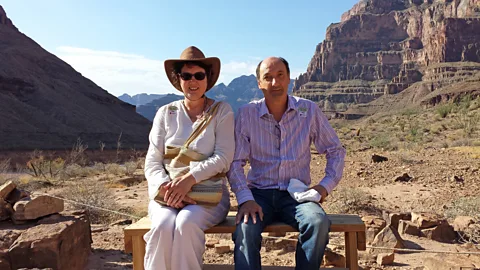
Would you give up your house to travel? How about your full retirement pension? After a health scare, one couple decided to do both – and today, spend life aboard a motorhome and boat.
When Julie and Steven Hando bought a boat in June 2010, they didn’t intend to use it on vacation. Instead, it would be their home.
The couple from south Wales had worked for years as civil servants for the UK government (he a computer programmer, she an administrator and manager). But in 1992, Steven got sick and was forced to go on haemodialysis until he received a kidney transplant the following year. For the pair, the health scare made it pretty easy to start planning for a life beyond the typical nine-to-five.
“There were no fears whatsoever,” Julie said. “We decided to just do it. We didn’t feel we deserved a break; it’s just that Steven’s health wasn’t good and there were so many things we wanted to do. If we didn’t do them now, we might never get the chance.”
But they didn’t quit their jobs right then. Instead, the couple waited for 18 years, allowing their youngest child to grow up and leave home. In 2011, after years of planning, they were able to make leaving their jobs more of an early retirement – one they intended to spend entirely on their recently purchased 18m-long, 2m-wide narrowboat.
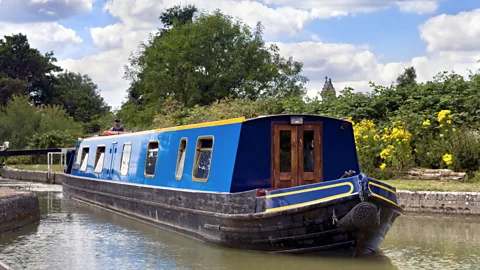
The next year, in 2012, the couple sold their four-bedroom, high-ceilinged Victorian-style house in southern Wales and either sold or gave away most of their possessions. Today, they split their time between the narrowboat, a motorhome and travelling, often on cruises.
“A typical day on the boat for us is very, very lazy. We wake up late, have breakfast and check in with friends and family over Whatsapp,” Julie said. “I’ll do some shopping while my husband watches black and white Western films. I often go for a little half-hour run.”
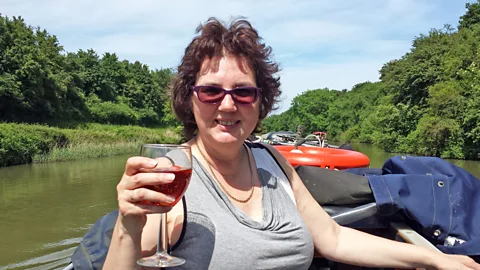
When purchasing their narrowboat, they used their past motorhome experience to select bed layouts, galley design and storage requirements. They knew they wanted a boat no larger than 2.1m wide, with a maximum length of 18m in order to navigate as many canals in the UK as possible. A multi-fuel stove and diesel central heating provide warmth during the winter. Water is included in their mooring fee; a meter at the marina provides their electricity. They buy bottled gas, which they use for their gas cooker, and a washing machine and small tumble dryer on board clean the clothing they’ve held on to.
“When you give up all your possessions,” Julie said, “you realize that, after all, they are just things.”
Since making the move to a more nomadic life, they’ve taken a helicopter over the Grand Canyon, taken the Queen Mary 2 along the Suez Canal to Dubai and cruised along the Baltic Sea to St Petersburg; they have also travelled to Rome, Switzerland, Cyprus, Spain, Las Vegas, Sao Miguel and the Caribbean. They drove their motorhome to the historic town of Dinan, France, where they dressed up in medieval gear to join in the Fete des Remparts celebrations; last winter, they took three back-to-back cruises around the Mediterranean, visiting Istanbul, Italy and the Greek islands. Next up: a trip to the Black Sea this October and November, where they’ll explore Bulgaria, Romania, Ukraine and Morocco. None of it, Julie said, would have been possible if they were tied down by jobs and a traditional home.
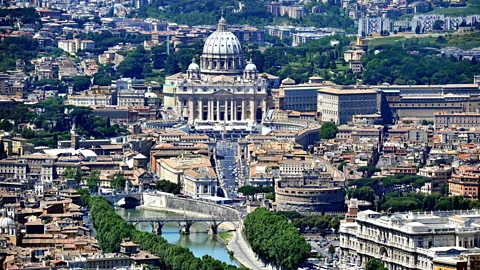
Though the couple loves their new lifestyle, Julie encourages those interested in boat living to consider certain factors. “Try spending time on a boat and taking vacations under different weather conditions,” she said. “Think carefully about where you plan to live, what facilities you have at your disposal and where you can buy fuel. Think about how important is it to have easy access to your friends and family. Do you want the added security, facilities and social benefits of a marina, or would you prefer mooring on a canal with fewer facilities, bearing in mind the costs of the mooring?”
Just as important, Julie said, is facing the fact that when living on a boat and travelling, you’ll be spending a lot of time as a couple. “Be ready to tell yourself that ‘Yes, I am happy to spend the rest of my time with this one person,’” she said.
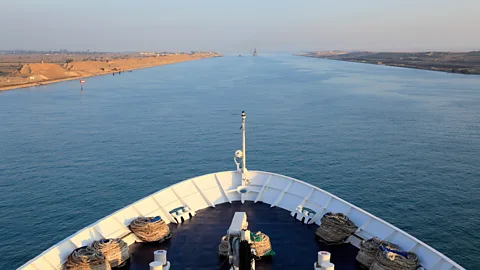
If it works though, the benefit to the lifestyle is being able to travel on a whim – and see all of the places you want to see.
“I have my own bucket list of things I want to do,” Julie said. “If I was still at work, I wouldn’t be able to tick everything off.”